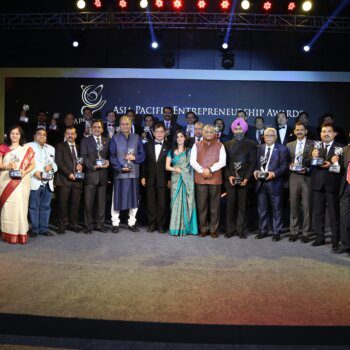Danny is a Singaporean who was born and raised in Singapore and spent time studying and working in the US and Sweden before returning in 2009 to start Found, a mobile social network which was funded by Joichi Ito, among other investors. Since shutting down Found in 2012, Danny has been working on internet projects with Rocket Internet (Zalora, Lazada, Home24) and Viki (exited to Rakuten for USD$200m) before starting HipVan with his co-founders in early 2013. He has been busy driving the van ever since!
What exactly is HipVan?
HipVan is an online store for great designs in home & furnishings, fashion & accessories, art & collectibles, and much more! Our goal is to bring great designs and great prices to consumers in South East Asia and beyond!
How did you come up with the idea of Hipvan?
HipVan is first and foremost hugely inspired by the most exciting e-commerce companies of today such as Fab, OneKingsLane and theFancy. Unfortunately most of these companies do not currently operate in South East Asia and so we decided to start HipVan to bring the same accessibility to great designs to consumers here.
Could you walk us through the process of starting up Hipvan?
My co-founders and I first met at Rocket Internet where we were involved in launching multiple e-commerce businesses in South East Asia. We realized the huge potential e-commerce holds in this region, and after leaving Rocket Internet, decided to work together to start an e-commerce company where we have a comparative advantage. From there, it was about picking the right idea to pursue and we quickly realized that we all share the same passion for great designs. HipVan was thus born as an opportunity for us to build a different type of e-commerce offering that focused on exciting merchandize and a great shopping experience for lovers of great designs.
How has it been like managing the business since?
Since opening the store on Apr 1, 2103 we have been overwhelmed by the response to HipVan and our revenues has grown >800% in the past 8 months. We are obviously very encouraged by the consumers’ response but at the same time we’re always trying to do better in terms of meeting their expectations before and after sales. Thankfully most of our customers have been very patient with our growing pains and so we hope to be able to repay them soon with better merchandizing selections, better pricings, and faster delivery times.
Did you find anything particularly difficult during the startup? How did you overcome it?
I think most entrepreneurs will agree that building the right team to execute against the business is always the most difficult thing. Once you have the right team in place, all the other difficulties can usually be resolved. We are lucky to have four very committed co-founders and a brilliant creative director to help manage and grow different aspects of the business from day one, so in that sense besides the usual difficulties of doing more with less, we’ve not had any particular difficulties that are more difficult than the rest.
How was the initial reaction from the consumers? Did they buy into the product/service?
Having to shut down my previous company due to a lack of demand from users, this was the first thing we set out to test with HipVan when we decided to embark on this idea. We had very specific and demanding milestones we set for ourselves in terms of revenue and number of orders that we had consistently cleared since the start so I suppose response from the consumers have been great! In terms of merchandizing, we have always been very open to experimenting and so we recently launched a Books Tuesday and Foodie Thursdays to feature literature and artisan foods respectively. Both have done surprisingly well for us so far and so we intend to keep offering new products and categories in the coming months.
Do you face a lot of competition in this industry? What is your strategy against your competition?
HipVan features merchandize across multiple categories so in that sense we are competing in many verticals at the same time. However I think our focus on unique designs sourced from all over the world gives us a real competitive advantage, and I also think we are starting to build a great brand that is becoming synonymous with great designs in this region, so that is our main competitive advantage. We will continue to invest heavily in these areas to make sure we stay ahead of our competition.
What can you tell us about the industry? Have you developed any industry insights that you could share?
Firstly I think besides the international brands, there are lots of great emerging designers in this region who have great products to sell! We are very excited that HipVan can be part of their journey to build exciting brands and businesses that originate from this region. That said, I think we still have quite some ways to becoming a force in design globally, and so I would urge companies working in this space to think bigger and try to work together so that we can accelerate our growth.
How have you managed to stay relevant in this industry?
There are no short cuts and we will continue to invest in expanding our merchandizing selection and improving our customer experience while we continue to grow HipVan into a regional company. Every day is a challenge to be better than what we were yesterday.
What are your future plans for Hipvan?
Many people seemed surprised when they hear this but HipVan is barely 9 mths old! We are extremely young and obviously have a lot more to do so I think the sky is the limit. That said, our hope is that HipVan can quickly become a trusted brand for great designs to our customers, and be a catalyst for any brands or products that wish to accelerate their growth in South East Asia. We also hope that HipVan can help perpetuate a culture of “buying less by buying better” as a force against global mass market consumerism. This is something we personally believe in.
If you could start all over again, would you change anything about your approach? If so, what?
This is such a loaded question! I think I’m going to skip this and say that we are pretty happy where we are right now.
What do you think about startups in Asia?
I think the word startups is a little generic as all businesses are or will be startups at some point in time. In general though I think Asians are every bit as enterprising as people from other parts of the world so I am bullish. Ultimately the aim of finding demand and a sustainable way to meet it is the goal of all businesses around the world, regardless of where they started.
What are some personal principles or personal values that guide you and your career?
Not many people know this but the name HipVan was actually first developed from the acronym Hip, which stands for Human Innovation Project. I developed this acronym as a way to think about new business ideas which I wish to pursue, and it basically boils down to the following factors:
Human: The human factor of the business, aka what are you passionate about, and what is the problem you would really like to solve. I think all aspiring entrepreneurs should start off with asking themselves this question.
Innovation: What is the innovation in your business? What is it that you are doing differently as compared to others or existing solutions that are trying to solve the same problem.
Project: What is your plan for execution? Do you have the requisite knowledge, experience, resource and competence to execute against your plan?
This is obviously an over-simplified way of evaluating new businesses but I’ve found it to be a generally effective way for me to think about my own career and business decisions.
What is your definition of success?
Living my life and helping others live theirs to their full potential.
Why did you decide to become an entrepreneur?
I did not! And quite frankly I think this is a trap which most people fall into. I get asked this question of “should I be an entrepreneur” a lot and my response is always that it is the wrong question to ask, especially when asked by a young student or professional who is trying to figure out if they should take the leap into entrepreneurship. I think the correct question to ask yourself would be “what do I really care about? What is the one thing I would like to change or improve on in this world in my short existence here.” Many times once you figure out the answer to that question, starting a business might not necessarily be the right thing to do. For example, if the thing you really care about is curing a particular disease, an academic or research career might be a better way to achieving your goal.
I really do think starting your own business is a last resort of sorts, as it generally means you could not find an organization that shares your beliefs. You then become an entrepreneur as you feel so strongly about it that you ignore the odds of failure and hardship to pursue what’s close to your heart. And again, I don’t think entrepreneurship necessarily means starting your own business. In the example above, if someone overcomes significant hardship to pursue a medical career, I think that person is much more of an entrepreneur than a business owner who simply decides to skim profits without providing any real value to the world. So long story short, I did not decide to become an entrepreneur but was simply trying to work on something that I really cared about. Unfortunately starting businesses became the only way to do that in my own examples.
Connect:
Website:www.hipvan.com
Linkedin: sg.linkedin.com/in/dannywtan/
Personal Facebook Page: http://www.facebook.com/danny.w.tan































